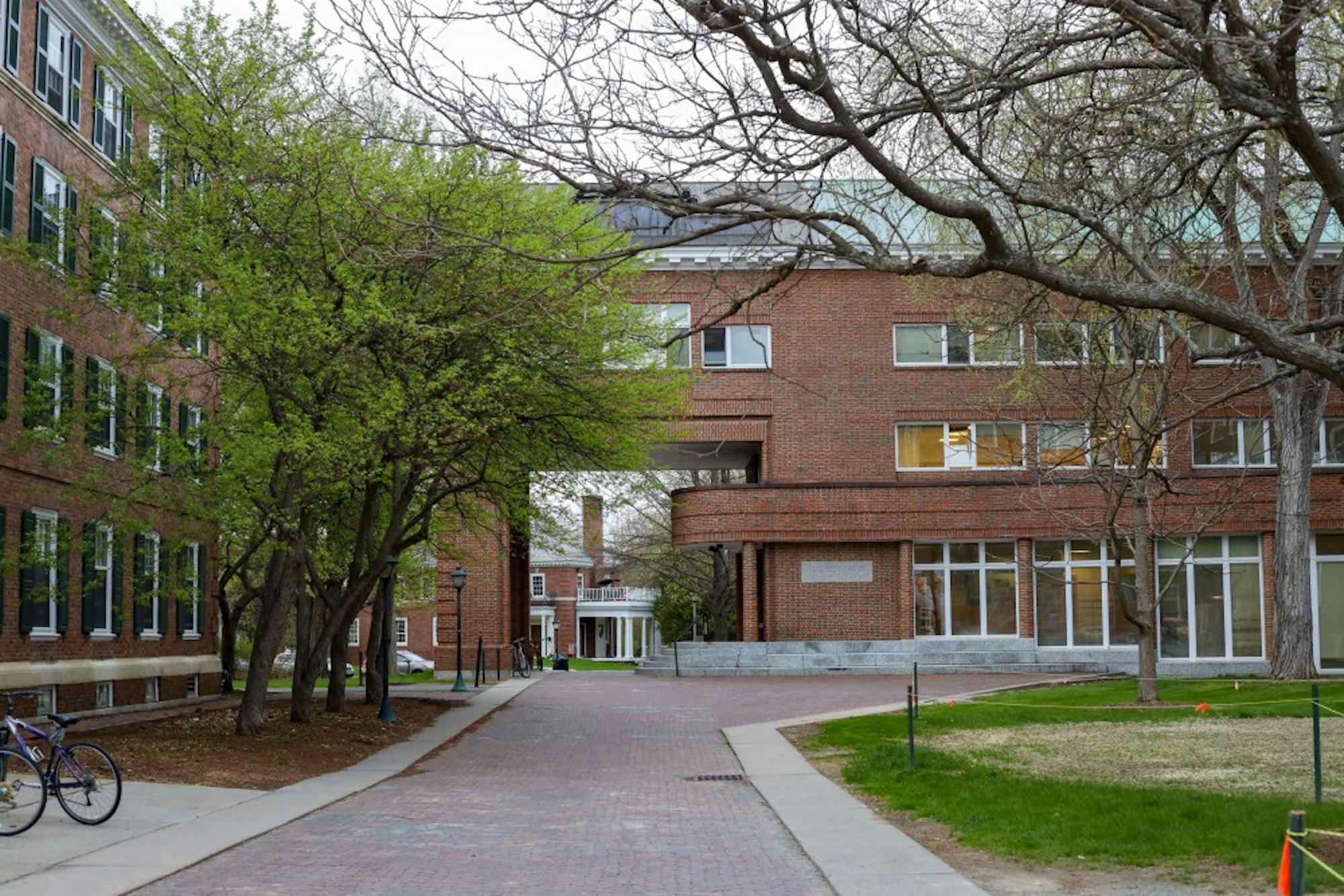On Oct. 17, the economics department and the Rockefeller Center for Public Policy hosted William Rodgers III ’86 in a lecture titled “Cases for Economic Equity” as a part of their series on Inequality, Discrimination and Opportunity. Rodgers, the current vice president and director of the Institute for Economic Equity at the Federal Reserve Bank of St. Louis, Missouri, presented four cases on recognizing and addressing economic inequities.
Economics professor Elisabeth Curtis began the lecture with a broad description of the LIDO series’s purpose, citing its emergence in June 2020 as the department’s “commitment to racial justice.” She said that the lectures seek to “deepen” community members’ understanding of economics’ role in informing policy decisions that address societal inequalities.
Curtis added that LIDO’s intended audience is primarily first-year economics students, in an effort to show students — from an early point in their study — that economics is a much broader field of study than just finance.
“When [finance] is what every student on campus thinks economics is all about, we realize that we’re not advertising ourselves very well,” Curtis said. “[Through the LIDO program], we wanted to broaden the spectrum of people who ECON 001 students are exposed to — so that at the very beginning of their studies in economics, they know more about what economics can do for society.”
Rodgers began by describing his “personal mission” as “empowering” people and communities through economic analysis.
Rodgers’s role at the Federal Reserve Bank involves community development and working with individuals outside of the Bank. He said he serves as a “translator” who rewrites and summarizes studies in a way that “folks on Main Street” can use. Rodgers described data as “important,” yet a fragment of the process behind economic policy, instead emphasizing the lives and narratives of individuals as guiding factors in implementing policy.
“I want to focus on … the narratives that need to be told,” Rodgers said.
Rodgers’s lecture recounted four examples of historical economic inequities, beginning by comparing Dr. Martin Luther King Jr.’s research in the 1960s to contemporary racial divides.
“Even in the improving economy [of 1966], you still found that Blacks were disadvantaged in all these different [economic] indicators,” Rodgers said. “[Today], because of this amazing recovery that we’ve had after COVID, there’s been absolute relative improvement. [But] in many cases, Black Americans today are at a status where they were back in 1979.”
He also discussed the government’s “underinvestment” in human priority investments, which he defined as a community’s public investments in human capital. When government expenditures in human priority investments fall, these declines can cause an increase in income inequality, Rodgers added.
Claire Xu ’25, an attendee, said that Rodgers’s lecture offered a contextualization of classroom concepts to the real world.
“It’s given me a broader view of these theories from class and their aftermath,” Xu said. “[His] lecture [dug] into how to fix it and apply that solution back to the theories that we’ve learned.”
During the lecture, Rodgers also explained the concept of the Asset Limited, Income Constrained, Employed framework — or “ALICE” — which he said creates a definition of poverty that is not purely economic. He said that the economic struggles of the lower class are often wrongly explained away by “laziness,” instead of addressing systemic inequities.
“[ALICE] are not too different from people who are in poverty, by the government’s definition,” Rodgers said. “But a lot of times, we let our language slip. We think that, ‘Oh, those people are in poverty. They’re lazy.’ One of the jobs we can take [is to] take off this ‘lazy’ explanation and to appeal to more structural changes [to address it].”
He finished the lecture by discussing differences in buying power across races and called for investing in “human priorities.”
“A lot of our work needs [to focus] on investing in schools, skills, competencies … investing in helping people balance work and caring for their families … investing in creating safe, fair workplaces … and promoting financial inclusion,” Rodgers said.
Rodgers said he hoped that the lecture showed “how economics can be used to help improve equity, to improve society and to improve communities” without partisan conflict.
He also hopes that students interested in economics bring their passions with them in their careers, whether that be equity or public advocacy.
“You can, in this work, be passionate but still be objective,” Rodgers said. “Instead of being so focused on that dream job, [I hope] that you develop a personal mission, and that anything that you do is always measured or brought back to that personal mission.”




